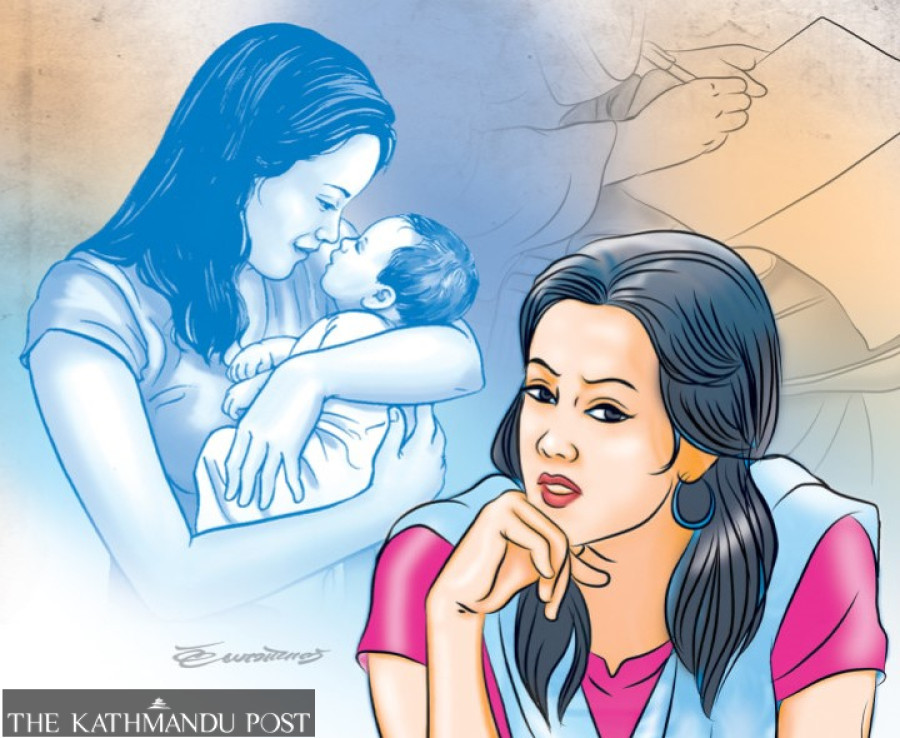Editorial
Take it easy, baby
Whether or not women have children should be a matter of their personal choice, not societal pressure.
If you don’t have children, you are not necessarily infertile. Perhaps you don’t want one, for whatever reason. Yet the Nepali society continues to treat couples without children as odd, and somehow medically defective. And in a still highly patriarchal setup like Nepal’s, the blame for childlessness invariably falls on women. They get asked intrusive questions about their reproductive health. Often, men in such childless unions are asked to remarry so that they can have babies and take the family lineage forward. According to a 2020 study, Nepali couples are often put under pressure into having a child in the first year of their marriage, even when both husband and wife don’t want a baby. Even if one or the other member of a couple is infertile, another research in West Africa suggests, infertility in itself is not a cause for women’s anguish, it's also what is known as the Social Pressure for Pregnancy (SSP). Most women who failed to conceive cited external pressure from families and society as the main cause of their distress.
As is the case in much of the world, the fertility rate in Nepal has been on a steady decline. For instance, in the two decades since 2002, there was a 50 percent dip in the country’s fertility rate. Greater awareness on family planning, increasing literacy and the rise in the number of families where both partners earn are responsible for this decline. So, again, many couples are not having children mostly out of choice. Yet women in particular continue to be under incredible social pressure to have babies, with women’s agency over their own bodies constantly undermined by their larger family and friend circles. Let’s face it, Nepal is still a men’s country where women and girls are routinely abused, verbally if not physically. When they face sexual assault, it becomes the women’s responsibility to establish guilt, even as the idea of consent is broadly defined in favour of the male perpetrator. There are far fewer women in decision-making roles, both in public and private sectors, again because of entrenched bias against women’s leadership qualities.
It is hardly a surprise that whenever the chhaupadi huts are brought down in western Nepal, they come right back up. There could be no better example of society's attempt to control women, including their sexual and reproductive lives. Things are not so bad for women in urban parts of Nepal, but it is far from satisfactory. Women are expected to have more children, yet most organisations offer little in terms of maternity leave. It is good that the government is preparing to extend maternity leave to six months from the current provision of 14 weeks. Such progressive policies will help women better juggle work and family. They should also help Nepal avert the kind of sharp decline in population fast-ageing countries like Japan and China are now witnessing. But, at the end of the day, it is the women who should decide whether or not they want to have babies and how many. In a progressive society, they should get the environment to do so.




 13.12°C Kathmandu
13.12°C Kathmandu














